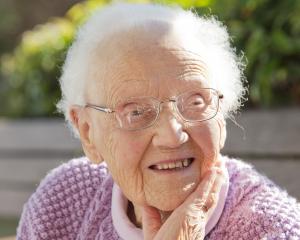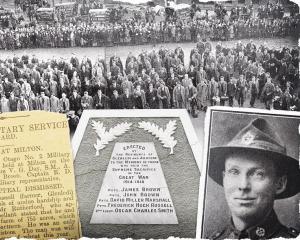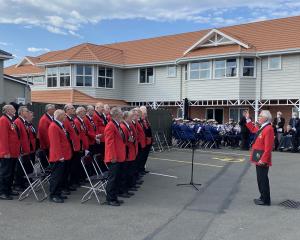
Last week Olivia Ray (17) and Leah Kissick (16) were judged the winners of the Combined Queenstown and Arrowtown RSA school competition. This year the competition focused on the First Battle of Passchendaele, on October 12, 1917 in which 2735 New Zealanders were killed or wounded.
Leah's speech focused on Dunedin-born Sir Harold Delf Gillies who pioneered plastic surgery during the war.
Sir Harold studied medicine at Cambridge University, in the United Kingdom and following the outbreak of WWI joined the Royal Army Medical Corps.
He ultimately helped establish a hospital devoted to facial repairs in Sidcup, London, where he and his colleagues developed plastic surgery techniques, performing more than 11,000 operations on more than 5000 men, primarily soldiers with facial injuries from gunshot wounds. He was knighted in 1930. Leah said much of her education around conflicts had been based on the ``negative side of war.''
``I wanted to focus on an individual who's taken the opportunity to have a positive impact on society ... if he did it now, he'd get so [much recognition] ... but he was in the shadows.
``I wanted to show that the war can, in some cases, bring positive ... inspiration.''
Olivia, meanwhile, focused on ordinary people to highlight the ``different kinds of bravery''.
One example was Private Victor Spencer who suffered post-traumatic stress disorder but was executed for desertion in 1918 when he was 21 years old.
Pte Spencer was born near Bluff, in Southland, and was raised by his aunt Sarah Goomes after both his parents died.
An apprentice engineer and cox for a local rowing crew, he enlisted in August 1915 and was sent to Gallipoli with the Otago Regiment of the New Zealand Division in WWI when he was 18 years old and then on to the Western Front.
By July 1916 he and some of his Otago Battalion had spent a month in the trenches without respite and stress had taken its toll - while in the trenches at Armentiers, in northern France, he was blown up and spent a month in hospital suffering shell-shock.
He deserted and was sentenced to nine months' hard labour and then sent back into the firing line before deserting again.
He was found two months later with a French woman and her two children.
Pte Spencer was executed on February 24, 1918 but was formally pardoned under the provisions of the Pardon for Soldiers of the Great War Act 2000, on grounds that his execution was not a fate he deserved.
While both girls had some experience in public speaking, giving their speeches at the Anzac Day services in Queenstown and Arrowtown would be a different experience.
``I think it will definitely be challenging because I'm not naturally a public speaker ... it's nerve wracking because we just want to do it justice and take the right tone,'' Olivia said.
``I think it's an important day and it's a huge deal because of what we're talking about - there are so many people who have been involved and affected by [war].''












